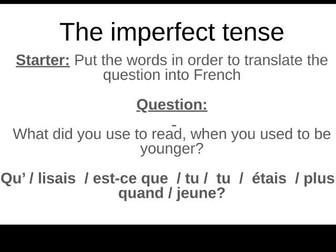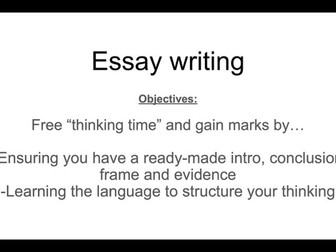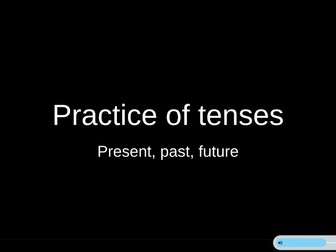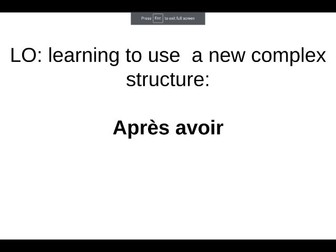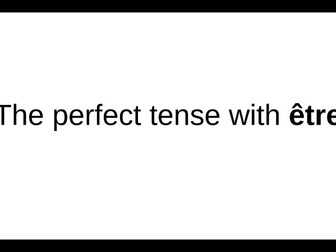The imperfect tense in French / l'imparfait
<p>This is a very scaffolded resource for beginner/ intermediate students wanting to learn the mechanics of the imperfect tense, its most common use (used to…) and to start distinguishing it from the perfect tense.<br />
There is lots of opportunities for formative assessment.<br />
The resource proposes alternatives to cater for students of various abilities.<br />
It finishes with a creative task to stretch the most able students.</p>
